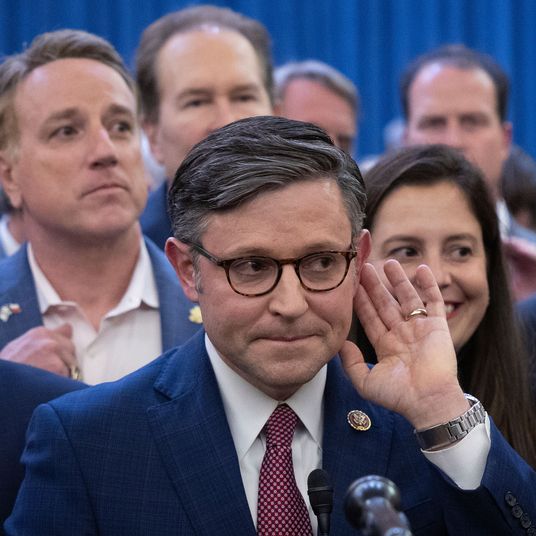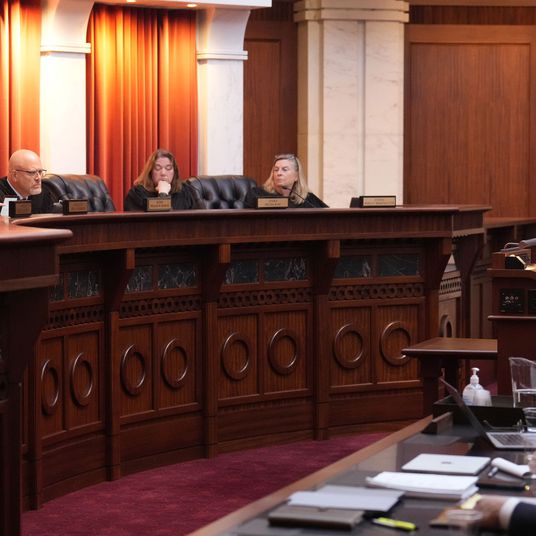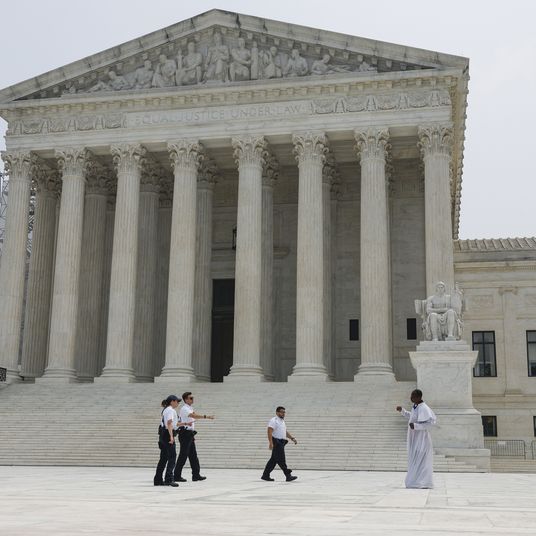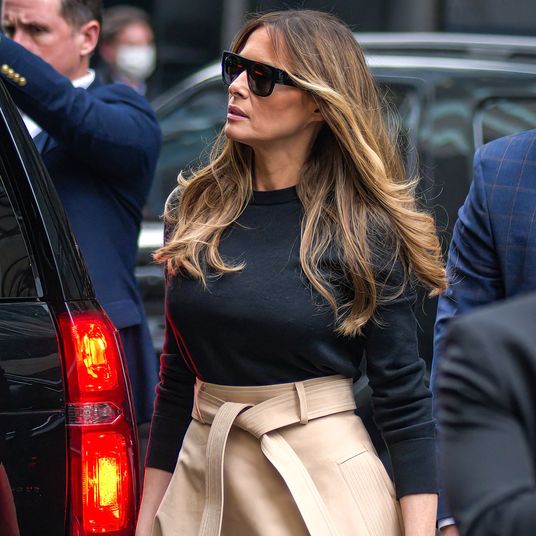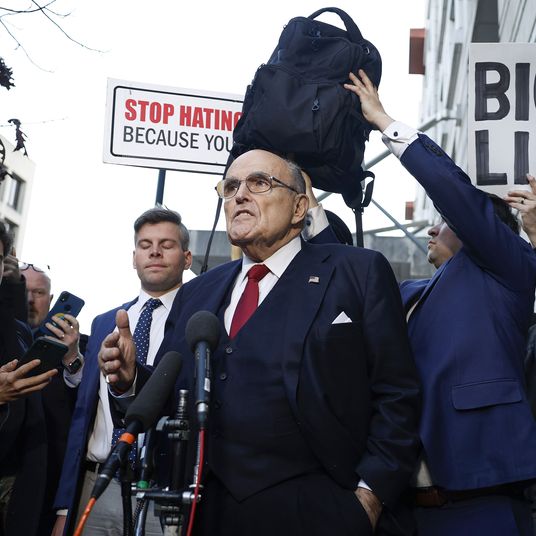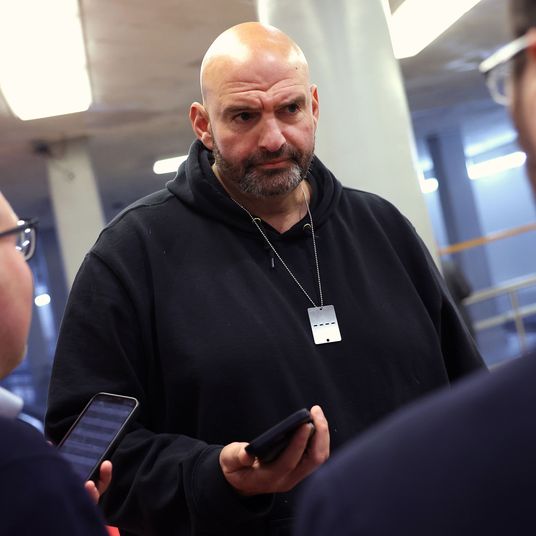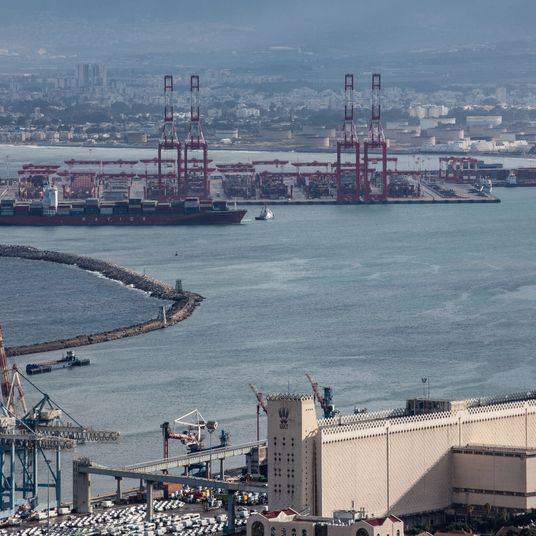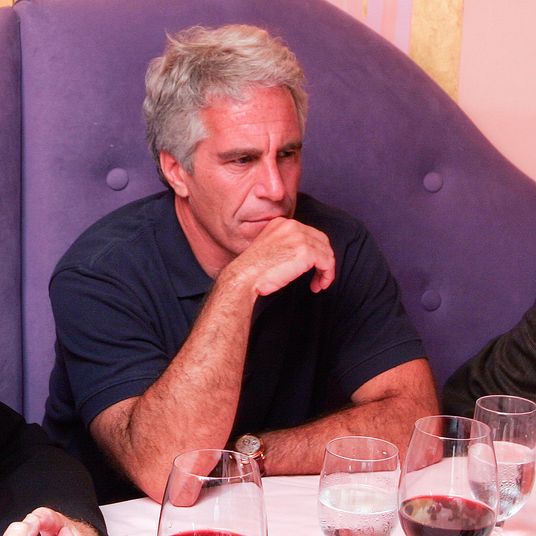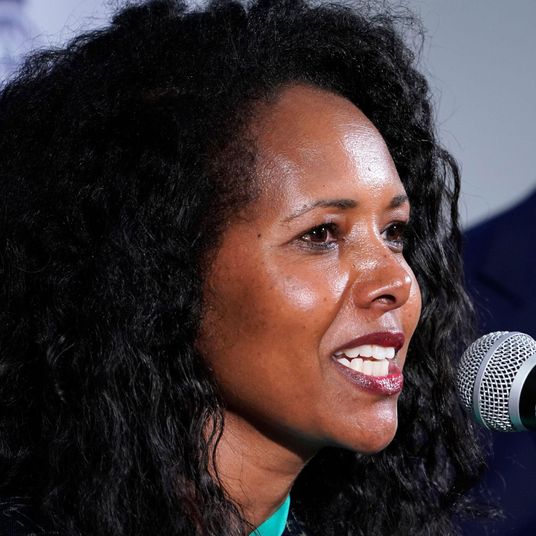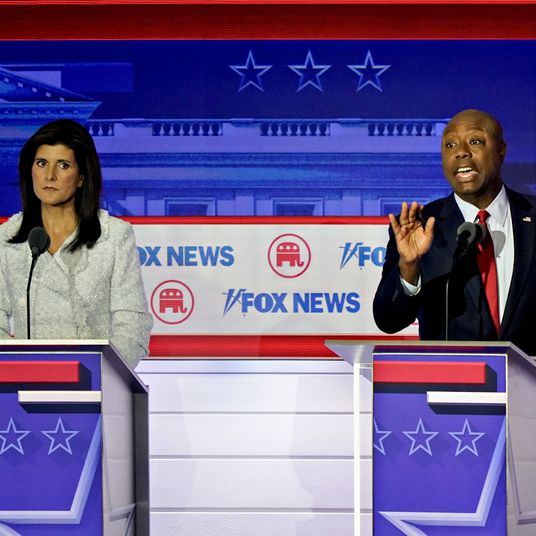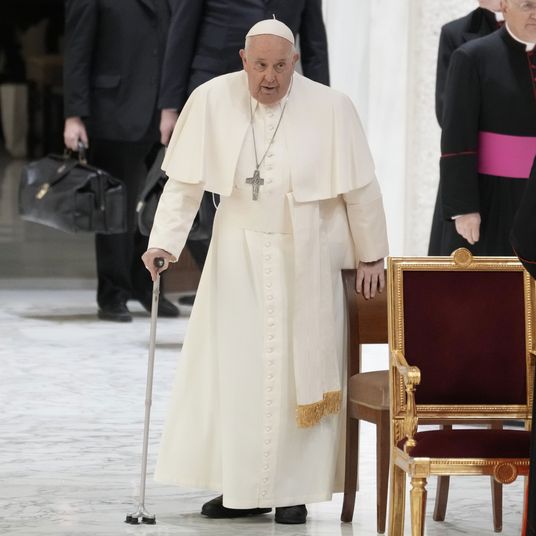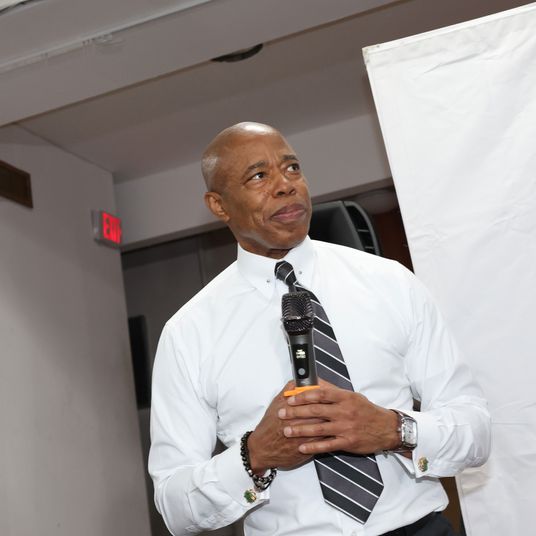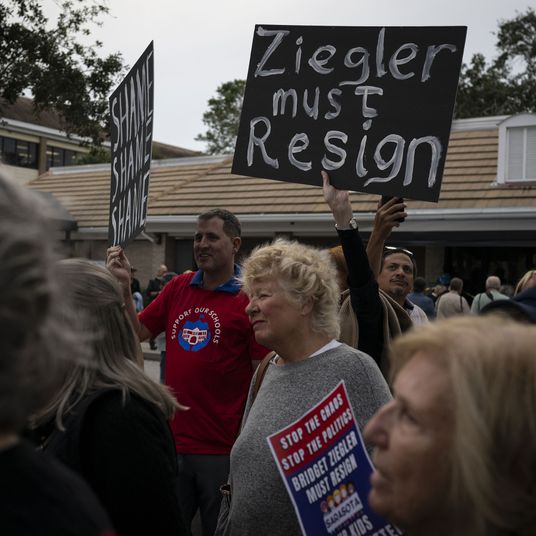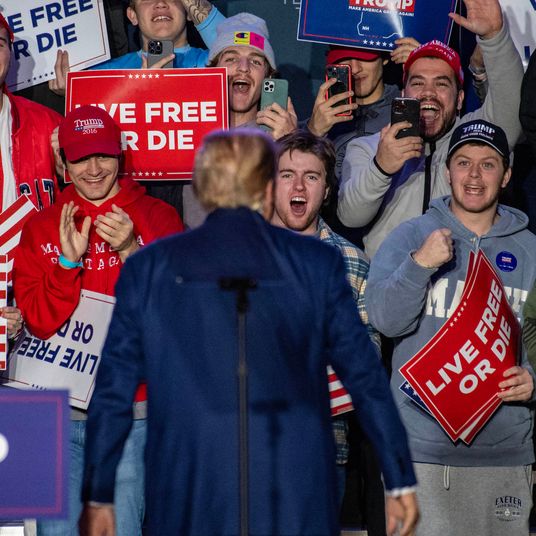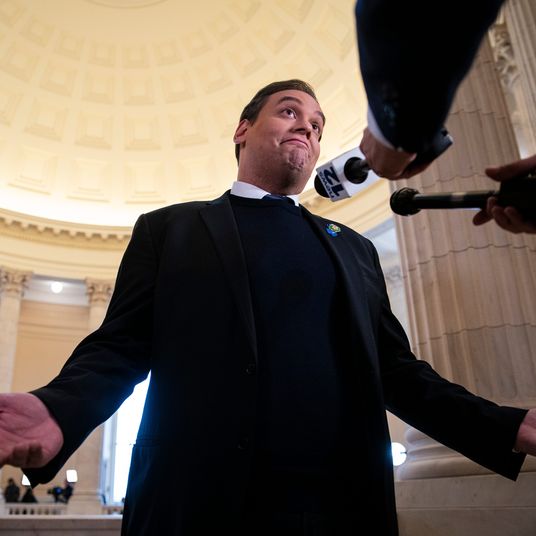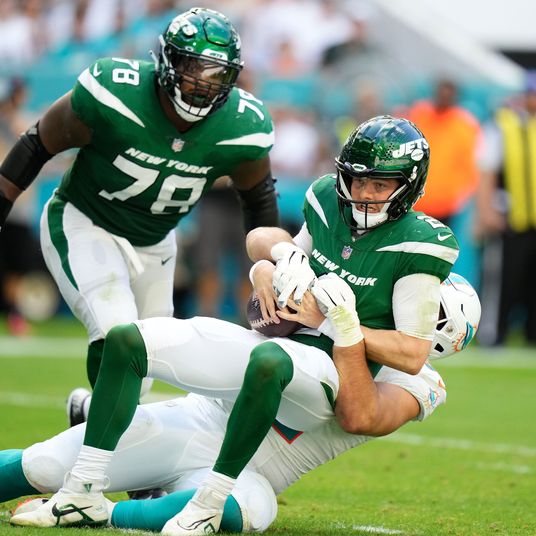
In late November, the incoming president of Argentina, Javier Milei, came to the U.S with an itinerary that included meeting with some of the most powerful people in Democratic politics. Milei ran as an anarcho-capitalist libertarian with “Make Argentina great again” as his campaign slogan. Donald Trump boosted him, Ben Shapiro loved him, and congressional Republicans were sending congratulations his way. But here he was, lunching with Bill Clinton and former senator Chris Dodd, who’s now a special adviser to the White House on Latin America, before meeting with President Biden’s national security adviser, Jake Sullivan.
To understand why Milei was so popular all of a sudden — and why his country is so important — I reached out to Jay Newman, one of the most powerful people in New York, for his perspective as a geopolitically-minded investor. As a former hedge-fund manager at Paul Singer’s Elliott Management, he sued Argentina to force the country to pay the full value of its debt to bondholders — and ultimately won $2.4 billion from the country after a protracted court battle. (He’s also the author of Undermoney, a novel about the entanglement between financiers, spies, and global power.) Newman is planning on getting back into the business of advocating on behalf of sovereign-bond holders, which could mean filing more lawsuits against foreign governments. We spoke about what has been going on inside the South American country, why it’s so strategically important for the U.S., and what Milei means for the global financial system.
Why is Milei’s election so important right now?
It’s an opportunity for the U.S. to claw back a strong relationship with an important country in South America. Look at the inroads that China and Iran and Russia are making. Look at Venezuela — [Nicolás] Maduro [the country’s president] is a creature of Putin and Xi Jinping, and he’s got Cubans running his security establishment. Colombia is chaotic. Brazil is questionable but very close to China. And then you have China having made inroads into Argentina with a listening station out in the middle of nowhere, which is basically a military establishment. Milei has made it very plain that he is U.S. focused. So this is a shot at clawing back these Belt and Road relationships from China and developing strategic relationships.
Can you explain to me what led to his election in the first place?
He was successful because inflation is running at 150 percent per annum. The whole place is broken. It’s been run by the Peronists for decade after decade. They’ve run it into the ground by not making investments in infrastructure. Let me give an example: The other reason that Argentina is important is the [large shale-oil and -gas formation] Vaca Muerta. Talk to any oil-and-gas person — Vaca Muerta is potentially a world game changer in oil and gas, and not just oil and gas but lithium.
So you have a country that could become a superpower in terms of energy and minerals that has not been able to get out of its own way. They haven’t been willing to say, for example, that if you invest money in Vaca Muerta and you discover oil and you sell oil, you can keep your profits offshore. That would seem to be a straightforward proposition, I think. But it isn’t in Argentina, where you invest the money, you sell the oil, the money comes back to Argentina, and they let you know whether you can take it out or not — and chances are you’re not going to get it out.
The other side of that is that corruption is rampant in Argentina. And maybe, just maybe, Milei is sick of that and he’s going to change that culture. He’s saying mostly the right things about what’s broken, and maybe he has some good fixes.
What does corruption look like there?
There were some stories about [former president] Cristina de Kirchner — bags of cash. [Last year, Kirchner was sentenced to six years in prison for graft.] It’s something that’s pernicious and embedded. Because of the perception that corruption is so rampant, it makes it difficult to consider investing. One example is the exchange rates. Over the years, Argentina’s had many, many different exchange rates, and one suspects — I don’t know this for a fact — that you can negotiate your exchange rate with the powers.
Personally, because we did business with external assets, we didn’t experience corruption. It was more anecdotal.
Milei campaigned on dollarizing the economy — adopting the U.S. dollar as an official currency. What does that mean?
Argentina is functionally dollarized, because the wealthy put their money in hard assets and keep a lot of money outside [the country], so they try to limit their exposure to the peso. It’s really the poor and the middle classes that suffer because they have no choice but to deal with local currency. And that currency has been inflated away dramatically.
What has been causing this rampant inflation there?
Nobody wants pesos. The government keeps borrowing, keeps spending. There’s no fiscal discipline. Every time they need money, they just print it. When you keep doing that, you just fuel inflation. Milei just devalued the peso by 50 percent. I don’t know if that’s the right path. I don’t know if that’s enough.
Milei moderated some of his stances, particularly around getting rid of the central bank there and possibly dollarization. Do you have any sense of how far he can go and what kind of political problems he can face?
He’s talked about shrinking government, and government has been a big employer. Peronists have used government employment as another tool of adhesion to the party. So people are going to be upset that they’re going to lose their jobs. People are upset that he’s going to cut subsidies. People are going to be upset about their costs going up. It will be costly and will be painful. But if he’s consistent, they’ll come out much better on the other side.
So is Milei’s election good for Argentina’s bondholders?
It’s terrible for sovereign-debt holders.
Really? Why?
They probably face their sixth recession in less than a decade. The one-year probability of default on the bonds is 35 percent. The five-year probability is 88 percent. Once you start seeing implied rates of probability of default like that, it almost becomes self-fulfilling.
When you think about what the debt means, rapid inflation — maybe he’ll solve that. Overvalued currency — maybe he’ll solve that. Chronic fiscal deficit. Can you solve that? He owes $44 billion to the IMF, $6.5 billion to China, $280 billion to external creditors. Burford Capital just got a $16 billion award against the country for expropriation. So he’s got nothing but piles of debt. And he’s got no money coming in. The prospect of a default might be a relief. He’s been saying to his people that he’s got to cut spending. If there’s no money domestically, it almost always follows that there’s no money internationally. So I think the prospect for avoiding a default is not good.
In terms of what you do, negotiating on behalf of sovereign-bond holders when countries default, would it be easier or more difficult to negotiate with Argentina?
Let’s just say, in a restructuring, you have bondholders taking a constructive long-term view of Argentina’s prospects, and you have a counterparty in Milei, who is interested in ideas and growth and rationalizing government and rooting out corruption and opening up opportunities for investment — if you have somebody like that to negotiate with, the prospects of helping him by giving him some forbearance on the debt would be a very, very good investment. I think it could be a very productive partnership between the country and its creditors. I think there’s an amazing opportunity here to get it right on both sides. That doesn’t mean that will happen.
I’m interested in the place of Argentina in this bigger global-power map. Is this similar in your mind to in the 1970s and ’80s between the U.S. and Soviet Union throughout South America and Africa?
It is. The great powers never stopped playing the great game. It’s been extended to Latin America and to Africa and Asia, but it’s particularly prevalent in Latin America. The U.S. was really not focused well or hard enough on how to develop those relationships. You have Brazil, which is, at best, neutral toward the U.S. and western powers, and you have others that are outright hostile. So pulling Argentina back into the fold of U.S. influence and western values would be a huge, huge event.
One of the main battlegrounds is the power and the influence of the U.S. dollar as the global reserve currency. Do you think that there’s any real chance that it could get supplanted by the yuan or any other currency?
I wrote a piece on this for Politico E.U., but I think that the U.S. dollar is at risk only at the margin. It’s just too entrenched, and too practical, as a tool of trade. You have deep institutions, strong institutions, that support the dollar that support transacting in dollars. And I wrote a piece for the FT just a couple of weeks ago. The Chinese are setting up dollar-based stablecoin exchanges in Hong Kong. If you think about offshore crypto and stablecoin exchanges, they’re mostly used by bad guys — bad guys meaning people who are under sanctions or people who engage in criminal activity. People under sanction and people engaged in criminal activity are a huge piece of the world economy. For most of world trade and most of international relationships, that dollar is still the place to be.
Anything else?
[Milei] is a big deal. The most important, seismic effect of Milei is that it shows that people in democracies — and Argentina is a democracy — can seek radical change. And not just radical change from a populace but a radical change from somebody who actually is well educated and has a shot at implementing what he’s talking about. That’s maybe the most encouraging piece of his election.






